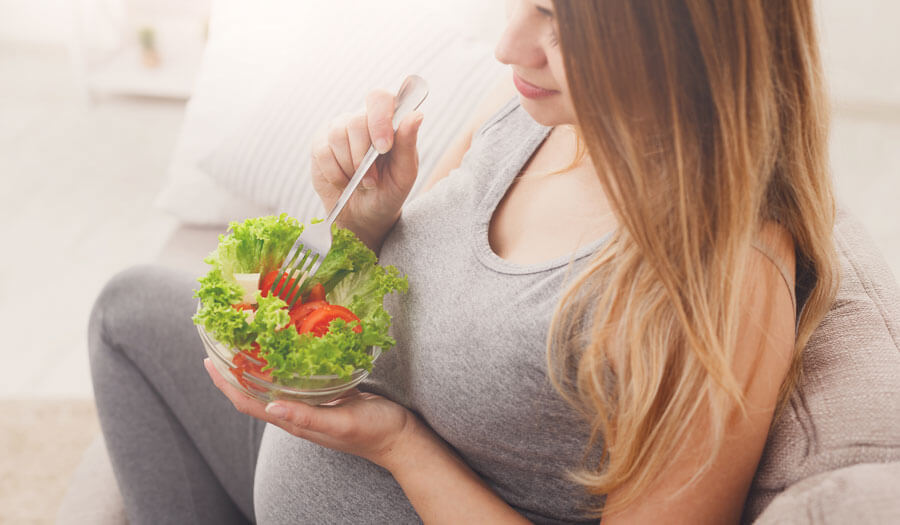A healthy diet during pregnancy is vital. However, it is best to start eating healthy & balanced food, even before you become pregnant.
Folic Acid / Folate
Folic acid is one of the essential nutrients, and you should take before conceiving itself. The ideal time to start folic acid is one month before conception when you are planning for pregnancy.
Food sources of folic acid
- Green leafy vegetables & citrus fruits
- Additionally, one must take folic acid supplements starting one month before conception and continue it for one to three months of pregnancy. You can contact your gynecologist for folate supplements.
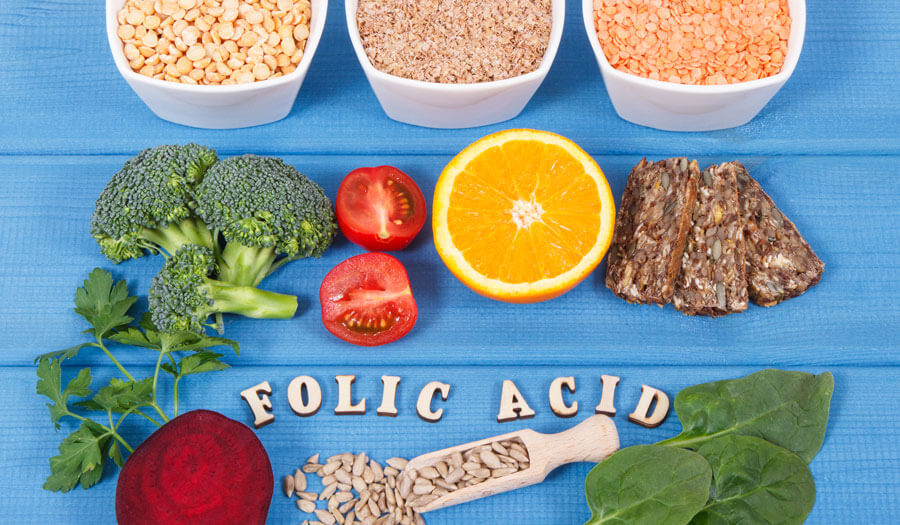
How much to eat during pregnancy?
Always remember, in pregnancy, there is no need to eat for two. The energy requirement of a non-pregnant woman is about 2200 kcal, whereas a pregnant woman needs 300 extra kilocalories.
How can you get the extra 300 Kilo Calories per day?
- Two cups of cow’s milk
- Two medium chapathis
- Two small cup of vegetables
- 100 gm of cooked rice
- Three idlis & a half bowl of sambar
- Two small veg sandwiches
- One whole egg
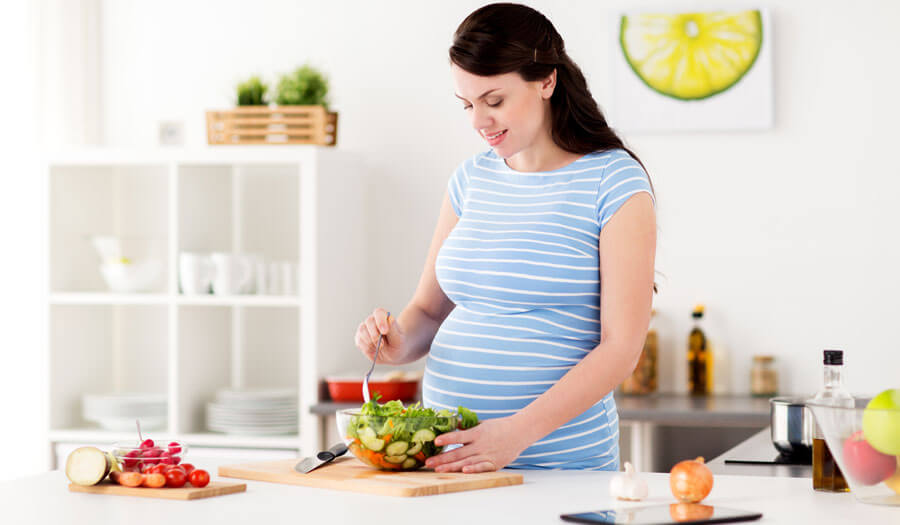
The diet during pregnancy should be adequate to provide Optimum fetal growth, Good natural health and Successful lactation. For women with normal BMI(18.5 – 24.9), the optimal weight gain during pregnancy should be 8-10 kg. For women who are overweight, with BMI 26 to 29, must gain weight of only 7 kg. For obese women with BMI more than 29, the optimum weight gain must be 5kg. For women who are Underweight, with BMI less than 18.5, the weight gain must be 10 to 12 kg. During the first trimester(3 months), a healthy weight gain is between 1-1.5 kg/ month. The first trimester is the time, many of the pregnant women may not like the smell of many foods & have nausea or morning sickness. It would be best if you had small meals at frequent intervals to avoid heavy meals. Take dry foods like biscuits, dry toast, idlis.
Eat bland diet
- Easily digested foods like carbohydrates & low-fat foods are always better during pregnancy
- Skimmed milk is better than whole milk
- Avoid coffee, fried foods, exclusive seasoning, Strongly flavoured vegetables
- Avoid oily, spicy foods & strong smelling foods
- Fresh Fruits / dried fruits (Dates, Apricots, Raisins)
If you have experience vomiting ( hyperemesis), then to prevent yourself from getting dehydrated, consume at least 2 litres of fluids everyday. Water, tender coconut water, buttermilk, fresh fruit juices and soups are in our recommended fluid list.
Dietary Iron
The dietary iron requirement for pregnant woman is more during the second half of pregnancy and is about 40mg/day. The iron in the diet is not enough to meet the daily requirement, hence supplementary iron therapy is needed from 16 weeks onwards.
Iron-rich foods :
Green leafy vegetables, dates, raisins, dry fruits, seafood, egg yolk, beans, soya beans, spinach, garlic, beetroot, nuts, oats, red meat, whole grains, and citrus fruits are iron-rich foods. However, keep in mind that, you should eat iron-rich foods with vitamin C-rich foods, such as citrus fruits and tomatoes for better absorption of iron by your body.
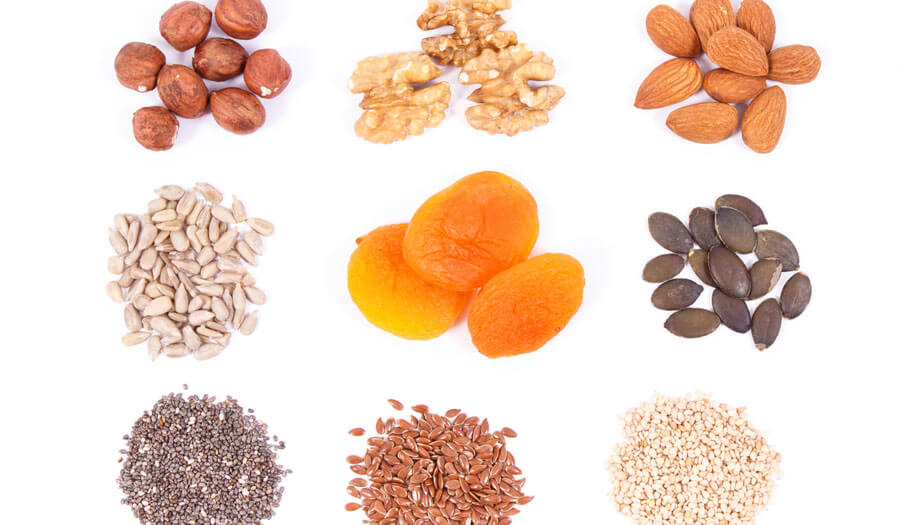
Calcium
The calcium requirement in pregnancy is about 1000 mg. Calcium helps in the formation of strong bones & teeth in the fetus.
Food sources calcium
- Dairy products
- Drink two glasses of milk ( 1 cup = 300 mg of calcium )
- Two cups of yogurt
- Cheese
- Paneer
- Almonds, Walnuts
- Brown bread
- Soya milk/soya beans
- Sesame seeds
- Lady’s fingers
- Sardines
- Balanced Diet
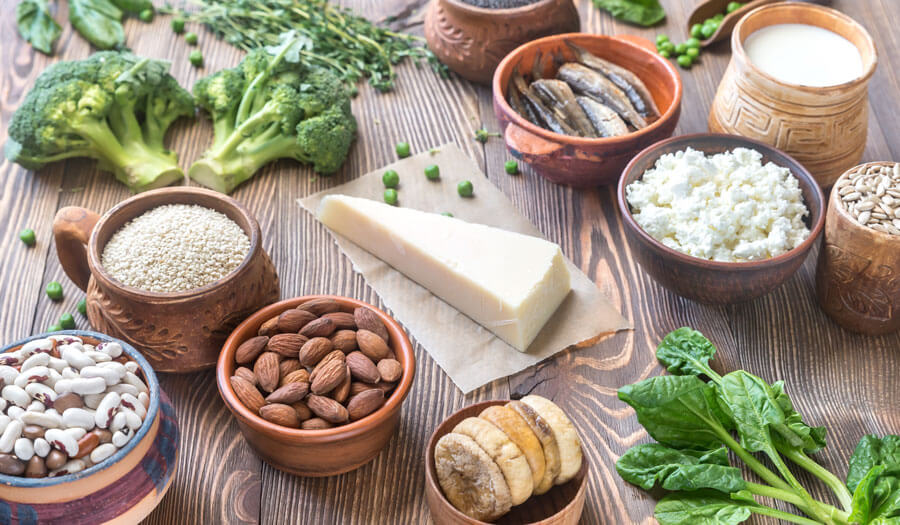
A complete balanced diet includes an adequate intake of Carbohydrates, Proteins, Fats, Vitamins, Minerals.
Carbohydrates
Carbohydrates provide energy. Rice, Chapathis, Oats, Maize, Brown Bread, Pasta are good sources of carbohydrates. Always select low glycaemic index carbohydrates. These release glucose into the body more slowly. List of carbohydrate foods with low glycemic index: Sweet potatoes, Oats, Bananas, Brown bread. High glycaemic foods raise blood sugar more rapidly. List of carbohydrate foods with high glycaemic index: Potatoes, White rice, White bread.
Proteins( Building blocks )
A pregnant women need 60 gm of protein per day.
Food sources of Protein
- Dairy Products like Milk, Yogurt, Cheese, eggs
- Pulses
- Nuts
- Red Meat
- Fish
- Legumes
- Tofu
- Soy
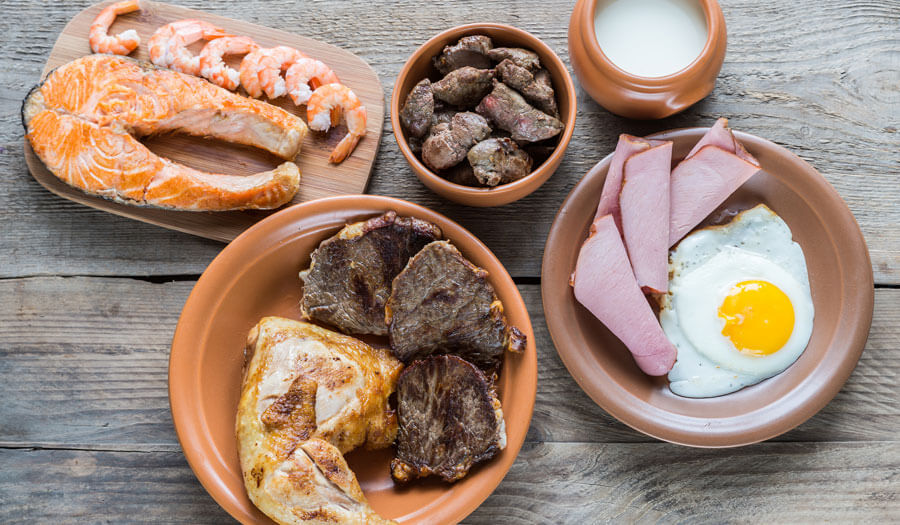
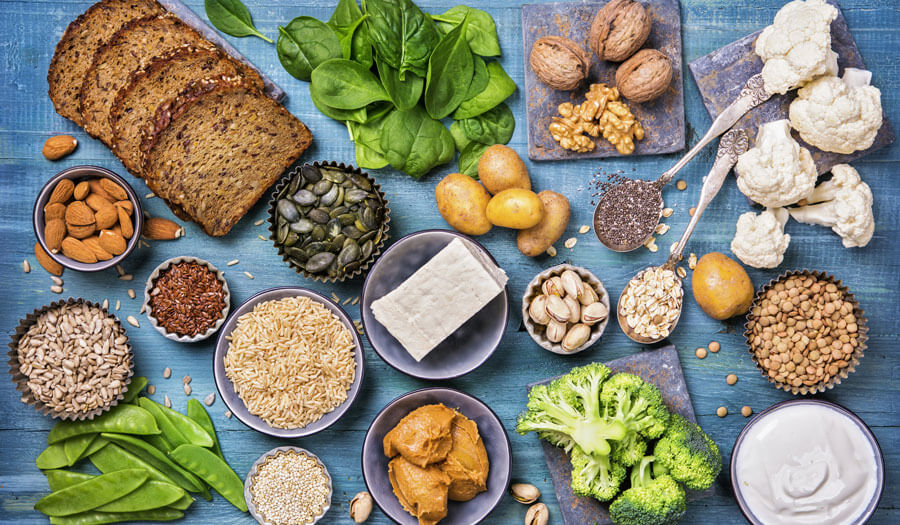
Fats
Essential fats are vital for the development of the fetus. These are not synthesized in the body & must be supplemented in the diet. Unsaturated fatty acids are necessary for the development of the nervous system of the fetus. Unsaturated fatty acids are abundant in :
- Olive oils , Avocado , Nuts
- Polyunsaturated Fatty Acids – Sunflower oil
- Omega 3 Fatty Acids – Tunas, Sardines, Salmons , Soybeans , Walnuts , Canola oil, Flax Seeds
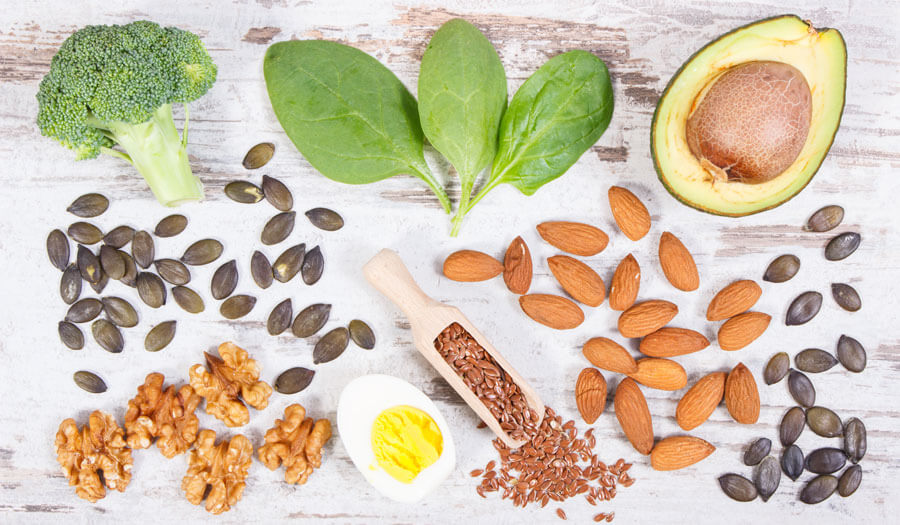
Vitamins & Minerals
Vitamin A :
Vitamin A helps for a good vision & healthy skin. It also plays a vital role in reproduction and breastfeeding. The daily recommended intake of vitamin A during pregnancy is 770 mcg during pregnancy and 1300 mcg during lactation.
Vitamin A Food Sources: There are two types of vitamin A, Preformed vitamins A and Provitamin A. Animal products such as fish, meat, chicken and dairy foods contain preformed vitamin A, whereas plant-based foods such as carrots, tomatoes, spinach, green leafy vegetables contain Provitamin B.
Vitamin B :
There are eight types of Vitamin B, and they are collectively known as Vitamin B complex. They are the following thiamine (B1), riboflavin (B2), niacin (B3), pantothenic acid (B5), pyridoxine (B6), biotin (B7), folate or folic acid (B9) and cobalamin (B12). Each of them has different functions, But more over all of them are useful for metabolism in your body. Vitamin B6 helps in reducing morning sickness. Bananas, cereals, beans, fish, eggs, and nuts are best sources of vitamin B6. Vitamin B12 helps in the formation of red blood cells.
Vitamin B food sources : Following are the rich sources of vitamin B, Salmon Fish, Green Leafy Vegetables, Legumes, Eggs, Milk & other dairy products, Chicken.
Vitamin C :
Vitamin C helps in the growth and repair of tissues. It also enhances the absorption of iron in the body. The human body doesn’t make or store vitamin C and Pregnant and breastfeeding women may need an extra amount of vitamin C. This is the reason you must take adequate amount of vitamin C. Daily recommended intake of vitamin C for pregnant women is 85 mg per day and for lactating women is 120 mg per day.
Sources of vitamin C : Citrus fruits and Amla are the rich sources of vitamin C. Tomatoes, Broccoli and Sweet Potatoes also contain a high amount of vitamin C.
Vitamin D :
Vitamin D helps the body absorb calcium, which is one of the building blocks of bone. Vitamin D deficiency increases the risk of low birth weight, preterm birth, gestational diabetes mellitus, and pre-eclampsia. Daily intake requirement for pregnant & lactating women is 600 IU.
Sources of vitamin D: Milk, Cheese, Tofu, Butter, Oats, Eggs, Mushrooms, Cod liver oil, Cereals are vitamin D rich foods.
Dietary Fibre
Dietary Fibre helps with digestion and prevents constipation.
Sources of Fibre: Vegetables and fruits provide fiber in the diet ( 3-4 servings/day). Brown bread, Beans, Walnuts, Pistachios, Dry fruits also contain fiber.
What food items to avoid during pregnancy?
You should completely avoid Alcohol, Tea, Coffee & Smoking during pregnancy.
Pica
What is Pica? Strong urge or craving to eat substances which are not food items & have no nutritional value like clay, chalk, ice, toothpaste etc is called Pica. It affects the intake of nutrients, leads to anemia and constipation. It’s harmful to you and your baby.
We provide diet counselling for healthy pregnancy. If you have any further questions regarding your pregnancy feel free to ask us. You can also message us on our facebook page. ASK US QUESTION
